Evidence Dialogue: Breaking Down Obstacles to Impact Evaluations in Humanitarian Settings
This was a hybrid event, with the opportunity to join in person in Washington, D.C. or online on Zoom.
Humanitarian settings have long been seen as a challenging context for the implementation of rigorous impact evaluations. The Humanitarian Assistance Evidence Cycle (HAEC) Associate Award addresses this challenge by working to increase the efficiency and effectiveness of emergency food security activities by increasing the demand for impact evaluations and the supply of researchers. Ensuring emergency programming is effective is vital to optimizing the use of often limited resources.
During this evidence dialogue, a panel consisting of operational and evaluation leaders representing USAID/BHA, implementing partners, and research entities discussed the work of HAEC thus far, providing insight into how the findings can be used to inform policy and research decisions. The event opened with a welcome from USAID's new Chief Economist, Professor Dean Karlan, and featured an expert panel including:
- Gary Glass, Blumont, Director, Monitoring and Evaluation
- Suzanne Ammari, Save the Children/IDEAL, Activity Director (Acting)
- Aprille Knox, Senior Policy Manager, J-PAL Global
- Keith Ives, CEO, Causal Design
During this session, presenters shared about:
- The results of a recently completed evidence gap map, which outlines the current evidence base of impact evaluations in humanitarian settings.
- HAEC’s consultation process that was conducted with practitioners and stakeholders to understand the current barriers hindering the implementation of impact evaluations in humanitarian settings.
- The next stages of HAEC’s work which seeks to develop and strengthen the capacity of the humanitarian community to implement impact evaluations will be outlined.
Watch the Recording Access the Slides
Welcoming Address
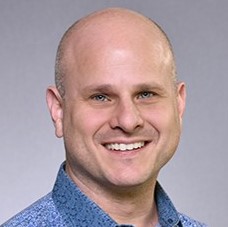
Dean Karlan, Chief Economist, USAID
Dean Karlan is the Chief Economist, USAID. He is the Frederic Esser Nemmers Distinguished Professor of Economics and Finance at Northwestern University, co-Director with Christopher Udry of the Global Poverty Research Lab at Northwestern University, and the Founder and President of Innovations for Poverty Action, a non-profit organization dedicated to discovering and promoting solutions to global poverty problems. Karlan is also on the Executive Committee of the Board of Directors of the M.I.T. Jameel Poverty Action Lab. In 2015, he also co-founded ImpactMatters, a nonprofit dedicated to estimating and rating impact of nonprofit organizations in order to help donors choose good charities and to promote more transparency in the nonprofit sector. Professor Dean Karlan is leading or involved with the following research initiatives that operate both in low-income countries and the United States: Global Poverty Research Lab (Northwestern University); Financial Inclusion Program (Innovations for Poverty Action), Finance Program (M.I.T. Jameel Poverty Action Lab), Small and Medium Enterprises Program (Innovations for Poverty Action), Social Protection Program (Innovations for Poverty Action).
Presenters
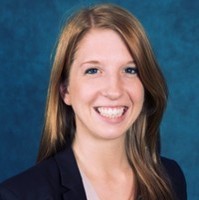
Christy Lazicky, Director of Impact Evaluation, Causal Design
Christy Lazicky is an economist who brings over ten years of experience designing and conducting impact evaluations across Africa and Asia, with a particular focus in the humanitarian, micro-enterprise and livelihoods sectors. She is currently the Director of Impact Evaluation at Causal Design where she leads their impact evaluation portfolio, overseeing the design and management of several impact evaluations including several large-scale USAID impact evaluations of humanitarian and development programming. Prior to joining Causal Design, Christy oversaw the technical design and execution of a portfolio of evaluations at IDinsight including designing and implementing a large-scale evaluation for a Development Impact Bond on poverty alleviation and an impact evaluation of higher education program for refugee students in South Africa. She has also managed several impact evaluations through previous roles at London Business School in Uganda, Rwanda, and Ghana and with MIT’s Abdul Latif Jameel Poverty Action Lab (J-PAL) in South Africa. She has extensive experience working with vulnerable populations in complex environments. Christy holds a MPA in International Development (MPA/ID) from Harvard Kennedy School of Government and a bachelor’s degree in Mathematics from Dartmouth College.

Cem Yavuz, Research Associate, 3ie
Cem contributes towards the production of systematic reviews and evidence gap maps of research on the effectiveness of economic and social interventions in low- and middle-income countries. He contributes to all stages of the review process from the literature search to data analysis and is currently working on a political competition evidence gap map. After completing his master’s, Cem worked as a consultant with 3ie for more than a year during which he contributed to numerous projects. He has also worked for a Turkey-based third-party monitoring and evaluation consultancy. He holds an MSc in Security Studies from University College London (UCL), and a BA in Politics from the University of Kent.
Panelists
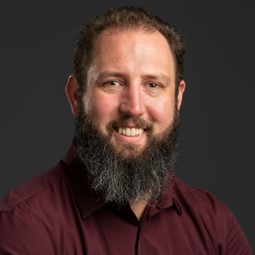
Gary Glass, Director, Monitoring and Evaluation, Blumont
Gary coordinates with Blumont teams around the world to track program performance, improve management of outputs and outcomes, and assess the impact of programming. Gary brings 15 years of applied research experience to Blumont, having led program monitoring and evaluation for development interventions in Central Asia, the Middle East, East Africa, and the Caucuses. Specializing in both quantitative and qualitative instrument design and analysis, Gary implements custom methodologies responsive to varied community contexts. Prior to joining Blumont, Gary served as the deputy team leader for the Afghanistan Reconstruction Trust Fund’s Third-Party Monitoring program in Kabul. Gary began his career as a Peace Corps volunteer in Armenia and China, working with local government and university partners to build environmental education and awareness initiatives for rural, agrarian communities. He holds a Doctorate and Master of Science in Rural Sociology from the University of Missouri and a bachelor’s in sociology from the University of California, Santa Cruz.
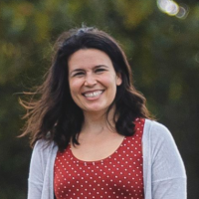
Suzanne Ammari, Activity Director (Acting), Save the Children/IDEAL
Suzanne Ammari is the Acting Activity Director for the Implementer-Led Design, Evidence, Analysis and Learning (IDEAL) activity at Save the Children (USA). She is a humanitarian and development leader with over 15 years of experience in food security and livelihoods programming across multiple countries and contexts. Prior to joining IDEAL in 2020, Suzanne was the Director of Emergency Food Security and Livelihoods with Save the Children US’s Department of Hunger and Livelihoods. In that role, she led a team of program managers and technical specialists in support of Save the Children’s over $100 million Emergency Food Security Program portfolio, co-led Save the Children’s global FSL Technical Working Group, and served as Save the Children’s representative on the IPC Global Steering Committee. Suzanne holds a Master of Public Administration in International Development from Cornell University.
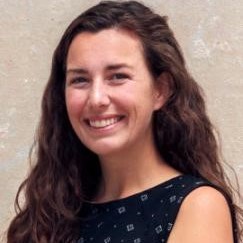
Aprille Knox, Senior Policy Manager, J-PAL Global
Aprille Knox is a Senior Policy Manager at J-PAL Global, where she manages the Crime, Violence, and Conflict sector. As a member of the Policy group, Aprille works with governments, NGOs, academics, and others to build research partnerships and promote evidence-informed policymaking. Prior to joining in 2017, Aprille worked as a Graduate Research Assistant for Innovations for Poverty Action (IPA) in Monrovia, Liberia, developing evaluation materials and training enumerators for a variety of randomized evaluations. Aprille also worked as a member of the governance team at Results for Development (R4D) and served as a Public Health Educator with the United States Peace Corps in Guinea. Aprille holds a master's degree in Global Affairs from Yale University's Jackson Institute for Global Affairs and a BA in International Studies from Boston College.
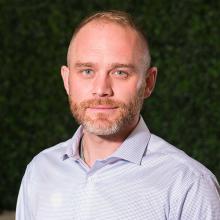
Keith Ives, Senior Advisor, Causal Design
Keith B. Ives is the co-founder and CEO of Causal Design - an economic analysis firm advancing evidence-based decision-making in development economics and humanitarian response. Before bringing the Causal Design team together, he consulted for The World Bank designing impact evaluations for the Liberian and Rwandan Ministries of Agriculture. Keith holds an MA in International Development Policy from Georgetown’s McCourt School of Public Policy. He was a Pablo Eisenberg Public Interest Fellow at Georgetown’s Center Public and Nonprofit Leadership and a Research Associate for gui2de managing RCTs in Nigeria and Kenya. Before shifting his focus to measurement and effective altruism, Keith worked in humanitarian response for Doctors without Borders and the American Red Cross and served as a United States Marine.
Moderator

Lloyd Owen Banwart, Senior Economist, TANGO International (Chair)
Lloyd Owen Banwart is the HAEC Activity Director and a senior economist at TANGO International. Lloyd has 17 years’ experience in international development, emergency programming, monitoring and evaluation, and applied research. Lloyd prides himself on his ability to work with implementing partners to develop rigorous, but achievable, systems which enable informed program design, implementation, and review. Lloyd has led evaluation and research activities across resource-scarce settings in Latin America, South Asia, and Africa. Prior to joining TANGO Lloyd worked with Venture 37 (previously Land O’Lakes International Development) on a Dairy Cooperative Development Program in Kenya and Uganda. Mr. Banwart holds a BA in Economics and Business Administration from the University of Wisconsin-Milwaukee and an MS in Applied Economics from Illinois State University.